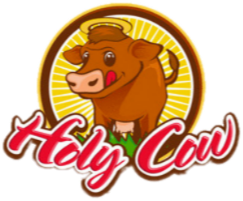Factory Farming: The Negative Effects on the Environment and Animal Welfare
posted on
November 1, 2023

Factory farming, also known as concentrated animal feeding operations (CAFOs), has become the predominant method of food production in many parts of the world. While it has allowed for the mass production of meat, dairy, and eggs to meet the demands of a growing population, it comes at a high cost to the environment and animal welfare.
Read on to explore the negative impacts factory farming can have on both the environment and the animals they raise.
Environment

Factory farming, with its focus on efficiency and quick results, has become a major contributor to environmental degradation in a number of ways.
Water Pollution
With the raising of billions of cattle and animals comes immense amounts of waste.
Traditionally, in factory farming, this waste is stored in pits or lagoons. However, these can leak and or break down due to environmental factors such as extreme weather. When this happens, surface and groundwater can become contaminated—causing serious threats to public health and our aquatic ecosystem as a whole.
Even when farmers choose to disperse this waste over farmland, they often spread more than can be effectively absorbed into the ground. This results in excess elements from the waste—such as nitrates, phosphorus, and nitrogen—running off into nearby water sources and groundwater.
Air Pollution and Greenhouse Gas Emissions
Factory farming releases a multitude of airborne pollutants, including hydrogen sulfide, notorious for its pungent odor impacting nearby residents and its role in causing acid rain and regional haze. Other air pollutants that emanate from throughout the facility—especially the confinement and waste-storage areas—include ammonia, volatile organic compounds, and dangerous greenhouse gasses.
These greenhouse gasses, such as methane and nitrous oxide, trap heat in the atmosphere and contribute to climate change. According to the EPA, agriculture is responsible for 11% of greenhouse gas emissions, with cattle and waste processes making up a majority of that.
Deforestation
To accommodate large-scale animal agriculture, large tracts of forests are often cleared, creating vast areas of deforestation. This deforestation plays a large role in the amount of greenhouse emissions that are caused by factory farming. Removing the trees that naturally grow in these areas not only releases CO2 into the atmosphere, it also leaves behind nothing to absorb these and other air pollutants.
Animal Welfare

Factory farming practices prioritize profit over animal well-being, resulting in numerous ethical—and potentially dangerous—issues.
Confinement
Animals on factory farms are typically kept in confined spaces that maximize efficiency and profit instead of animal health and wellness. Poultry, for example, are often raised in crowded cages or windowless sheds, preventing them from engaging in natural behaviors like stretching their wings or scratching the ground. Overcrowding leads to stress, disease, and a diminished quality of life.
Inhumane Treatment
Common practices in factory farming include debeaking of chickens, tail docking of pigs, and painful procedures performed without anesthesia. These practices are used to prevent injuries caused by stress-induced aggression in crowded conditions. However, they cause considerable pain and distress to the animals.
Hormones and Chemicals
Factory farming often employs the use of growth hormones and antibiotics to accelerate the growth and production of animals. Hormones like recombinant bovine growth hormone (rBGH) are administered to dairy cows to boost milk production, while antibiotics are used to prevent disease outbreaks in crowded conditions.
While these practices may enhance efficiency and profits, they can lead to serious health issues in animals. Hormone use can result in physical stress and discomfort, and the routine use of antibiotics contributes to the development of antibiotic-resistant bacteria, posing potential health risks to both animals and humans.
The use of hormones and chemicals not only affects the animals' welfare but also raises concerns about the long-term environmental and public health implications. It underscores the need for more sustainable and responsible practices in agriculture, where the well-being of animals and the broader ecosystem is prioritized over short-term gains.
Factory farming has undeniably negative effects on the environment and animal welfare. The good news is that proactive farms like Holy Cow Farm Fresh are choosing to focus on alternative forms of farming, like regenerative agriculture—which prioritizes sustainability, animal welfare, and local communities.
By choosing to support these practices, we can contribute to a healthier planet and more ethical food production systems. It's time to consider the true cost of our food choices and make conscious decisions that benefit both the environment and the animals we share it with.

Holy Cow Farm Fresh is your destination for premium, healthy, grass-fed, and pasture-raised meat. Our local and family-owned livestock farm is dedicated to providing our customers with the highest quality, locally sourced, and sustainably raised meat—all without worrying about fake ingredients, hormones, and chemicals. Visit our website, follow us on Facebook and Instagram, or give us a call to get started on your order!




